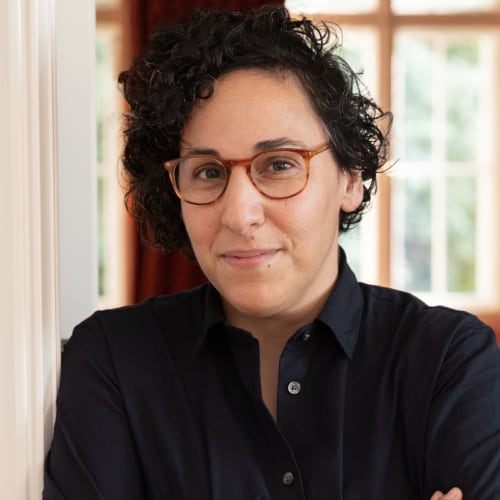
- Executive Director, Programs and Operations
- Email: nshakked@clarku.edu
Nitsan Shakked, MA., MSc. holds a wealth of experience at the intersection of science, technology, society, and global issues. With a diverse academic background including a B.Sc. in Earth Sciences from the Hebrew University of Jerusalem, an M.Sc. in Environmental Geosciences from Tübingen University, and an M.A. in Global Affairs from Yale University, Nitsan has consistently sought to leverage her Scientific and Policy expertise to confront developmental and environmental challenges.
Nitsan held leadership positions directing environmental initiatives at institutions such as Tufts Institute of the Environment and collaborating on developmental projects sponsored by the European Union, GIZ, and Relief International. She has also been deeply involved in geo-engineering projects internationally, working with organizations such as the Dead Sea Conservation Company, MÖRK Water Solutions, and USAID. Notably, her contributions include co-founding an award-winning social startup and directing an EU-funded project focused on developing renewable energy-driven desalination technologies to provide water security in remote, off-grid locations.
In addition to her work at Clark CGA, Nitsan is currently a doctoral researcher at the Hertie School of Governance in Berlin, where her research focuses on the intersection of marine governance, technology, and society, particularly addressing the challenges and opportunities posed by Deep Sea Mining (DSM) for socially critical metals ventures. Her work integrates Big Data analysis, material flow and social metabolism analysis, and ethical considerations to inform sustainable energy practices and environmental stewardship.
As Executive Director of the Clark University Center for Geospatial Analytics, Nitsan is poised to lead innovative initiatives that harness geospatial analytics to tackle global challenges, bridging the gap between scientific innovation and societal impact.
Nitsan emphasizes: “Geospatial analytics isn’t just about maps; it’s about understanding the world’s complexities and solving global challenges. Embracing the latest technologies and innovative approaches, including GeoAI, is not just the future but the imperative for addressing pressing global issues. Our center stands at the forefront of this evolution, leveraging Clark University’s unparalleled expertise and experience to redefine how we analyze and interpret spatial data. By rethinking geospatial analytics, we’re not just mapping the world; we’re shaping its future. Furthermore, through collaborative efforts with policymakers and stakeholders, we can ensure that geospatial analytics becomes an integral part of policy formulation and implementation, driving positive change on a planet-earth scale.”
